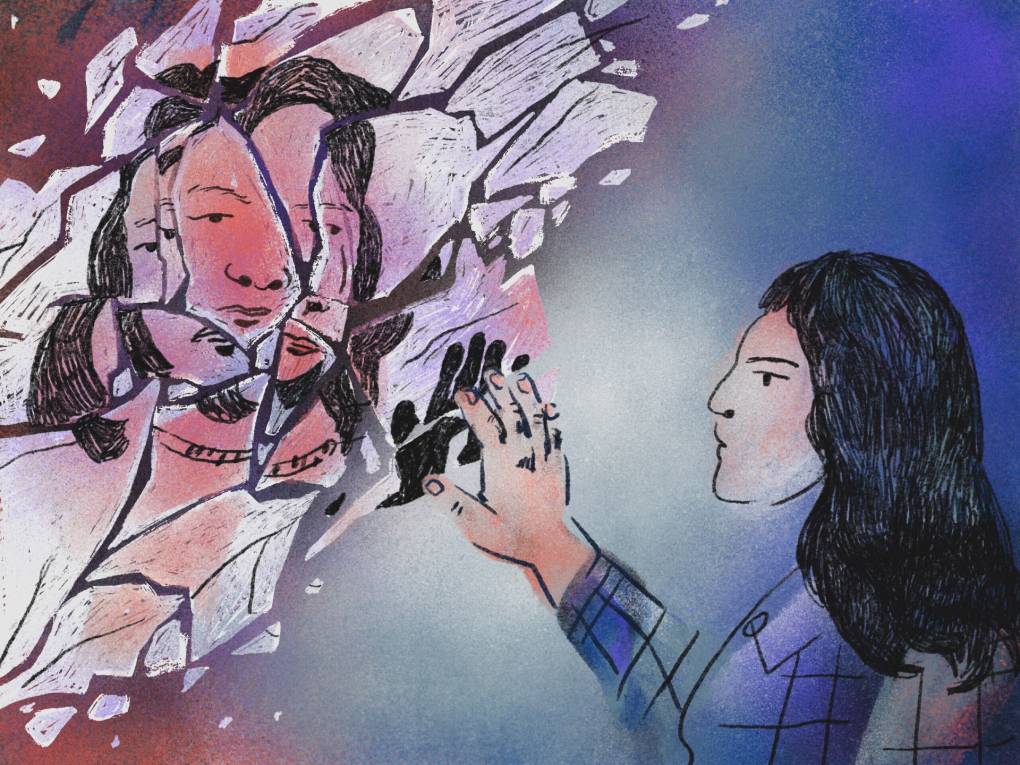Proven Schizophrenia Treatments Keep People in School, at Work and off the Street. Why Won’t Insurance Companies Cover Them?

KQED, by April Dembosky, March 1, 2023: What if, instead of telling patients with schizophrenia to prepare for a lifetime of disability, we asked them what they want and worked with them toward full recovery?
When Yvonne was walking across campus and heard someone calling her name, she stopped and looked around, but the other students flowed around her, oblivious. She continued on, then heard it again.
Yvonne? Stop. Look. Nothing.
She was confused, but like anyone else would, Yvonne brushed it off.
She sat down in her anatomy class, in the middle of a big lecture hall, and when the professor began his lesson on the renal system, Yvonne started to feel funny, like he was talking about her body.
“I was like, ‘Why is he talking about my kidneys? How dare he,’” she remembered. “I got really scared and I ran out of class.”
She shook this off, too. As she crunched through the rust-colored leaves of an East Coast autumn, she started to hear chattering, like a radio was on in the background of her life. She ignored it as long as she could — until the voices started speaking to her in full sentences, telling her what to do: “You should jump off a bridge. Take that knife and cut yourself,” they said. “You’re worthless.”
Her doctor prescribed some medications, but Yvonne, 22 at the time, continued to lose perspective. Maybe the voices weren’t just her mind playing tricks on her? Maybe they were real? That’s when the aliens arrived. She heard the loud, screeching sound of their ship hovering outside her window at night.
“We need to remove you from this planet,” the aliens told Yvonne. Then they spoke to each other in their own gargled alien language that she couldn’t understand.
Yvonne had no doubt this was real. And when God started talking to her a few weeks later, that was real, too. He told her she was going to be the next Jesus and he was going to give her instructions on how to save the world. At first, this made Yvonne feel great. God had chosen her. But then she got scared, overwhelmed by the responsibility. What if she couldn’t fulfill what God wanted for her?
“He’s going to send me to hell and I’m a terrible person,” Yvonne said.
Yvonne’s mom convinced her to check herself into the hospital. But it was almost six months after she left the hospital that she got an accurate diagnosis: schizoaffective disorder — roughly, schizophrenia with bouts of mania or depression. And for another six months after that, she sat on her parents’ couch, unable to read, unable to go to school, waiting for a spot to open up in a treatment program.
“My life wasn’t my own,” said Yvonne, who asked that we use a family name to protect her mental health history. “It was up to these voices because they told me what to do. They wouldn’t go away and I couldn’t do anything with them. So they ruled my life.”
Yvonne is one of 100,000 young adults or adolescents who have a psychotic episode every year in the U.S. For most of them, it takes a year and a half to get into meaningful treatment, if they ever do at all. Treatment programs recommended by the National Institute of Mental Health as the gold standard of care for early psychosis rarely have enough slots available for the people who need them, and health insurance companies typically refuse to cover the full cost of these programs, even when they are available.
Read more from KQED here.




